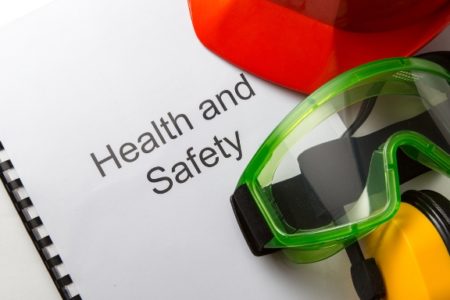Analysis by the Health and Safety Executive has identified inadequate safety management systems as an area to tackle in order to reduce worker fatalities in the waste sector.
The advice came in a report by HSE, published this week, in response to the “high rate” of worker fatalities in the waste sector.

The Heath and Safety Executive has published a report into fatalities in the waste and recycling sector
The research reviewed 18 fatal incidents and included in-depth interviews with HSE inspectors involved in the incident investigations.
SMS
From the research, HSE found that “there were poor or inadequate SMS in place across all of the eighteen cases reviewed”.
“Some organisations (both SMEs and large) may think their SMS is adequate and well documented the analysis indicated this was not always the case,” HSE said.
“Notably this was characterised by inadequate or no procedures available to employees, lack of effective supervision, inadequate or no risk assessments and control measures not being identified or not implemented effectively to reduce the risk to employees.”
Overall, the fatality rate in the sector was 15 fifteen times the average rate across all industries for the period 2008/9 to 2015/16 and human factors were identified as playing a “significant role,” HSE said.
Of these incidents, 12 were in ‘small and medium enterprises’, SMEs (with less than 250 employees) and 6 in large enterprises (250 or more), HSE notes.
However, HSE says, the majority of influential factors for a fatal incident are consistent across the two sizes of organisations.
Human factors
HSE inspectors involved in investigating the incidents and identified four common and interrelated human factors:
- the heightened risk of incidents because of the lack of separation between people and hazardous machinery on site;
- inadequate safety management systems and poor safety culture;
- individuals having insufficient knowledge of how to plan and perform tasks safely; and
- in relation to SMEs, inadequate instructions supplied with equipment (which can often be second hand) or inadequate risk assessment advice.
From the research, two priority human factors were identified to tackle: equipment factors (selection, design, use and maintenance) and safety management systems (SMS).
In the report, HSE said: “There is a need for better information for organisations to help them understand which equipment would be best suited for the task they are undertaking”.
And, HSE explained there is a need for “better safety management; understanding what constitutes a risk; identifying hazards, assessing risks, and identifying effective control and mitigation measures; and controlling”.
CIWM
“Visible enforcement is important and we welcome HSE’s planned programme of proactive inspections later this year.”
Colin Church
CIWM
Research for the report was supported by the Chartered Institution of Wastes Management (CIWM).
Commenting on the research findings, CIWM’s chief executive Colin Church said: “Many of the industry bodies and organisations with influence across the UK – including CIWM, ESA and WISH – have worked collaboratively to improve awareness and provide useful guidance and we know that many companies have also taken action to improve health and safety across their operations. However, there is still much more to do to reach the objective of ‘zero deaths’ agreed between HSE and industry stakeholders.
“Visible enforcement is important and we welcome HSE’s planned programme of proactive inspections later this year. CIWM is committed to supporting this with a behavioural change campaign to raise awareness around personal responsibility for health and safety in the workplace and embed a more robust health and safety culture across the sector.”
The post HSE calls for better safety management appeared first on letsrecycle.com.
Source: letsrecycle.com General



